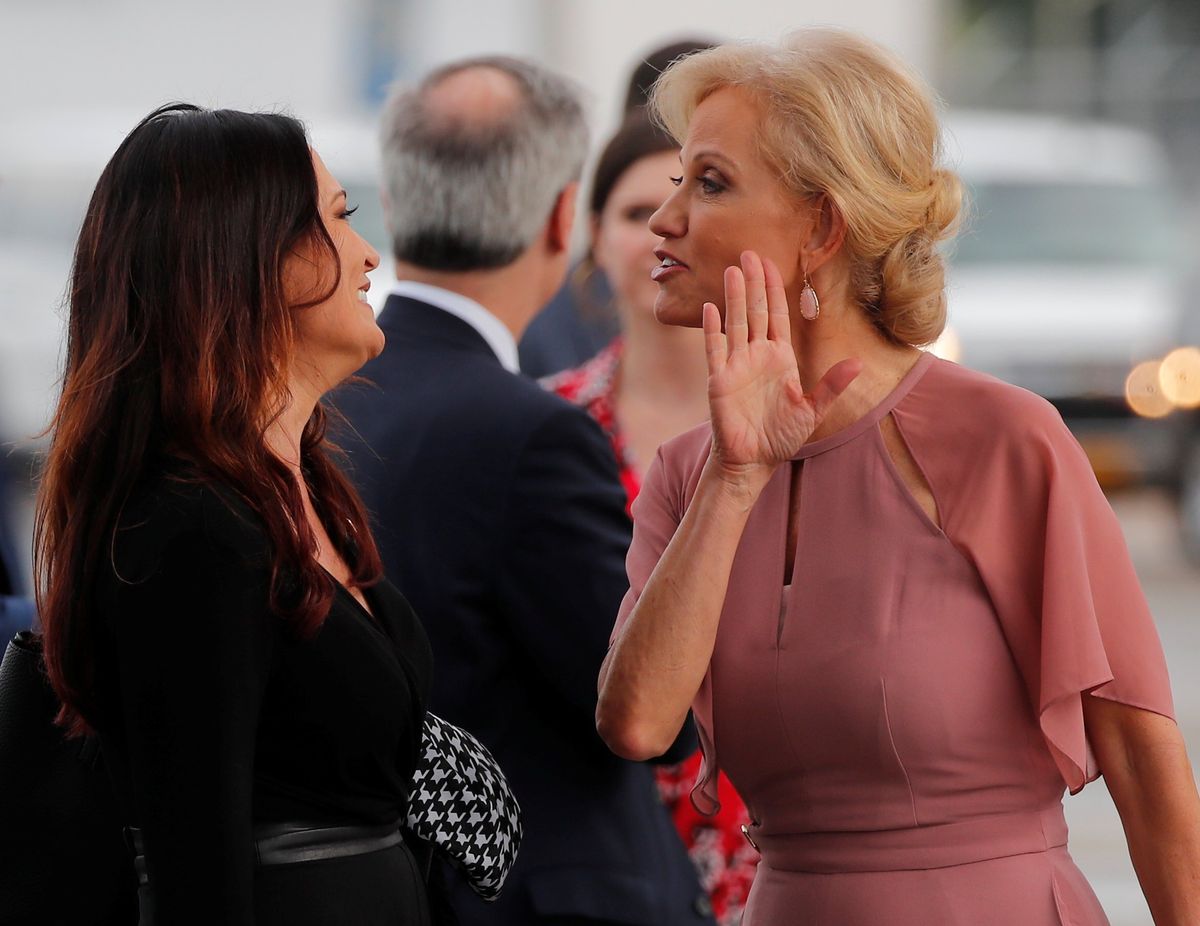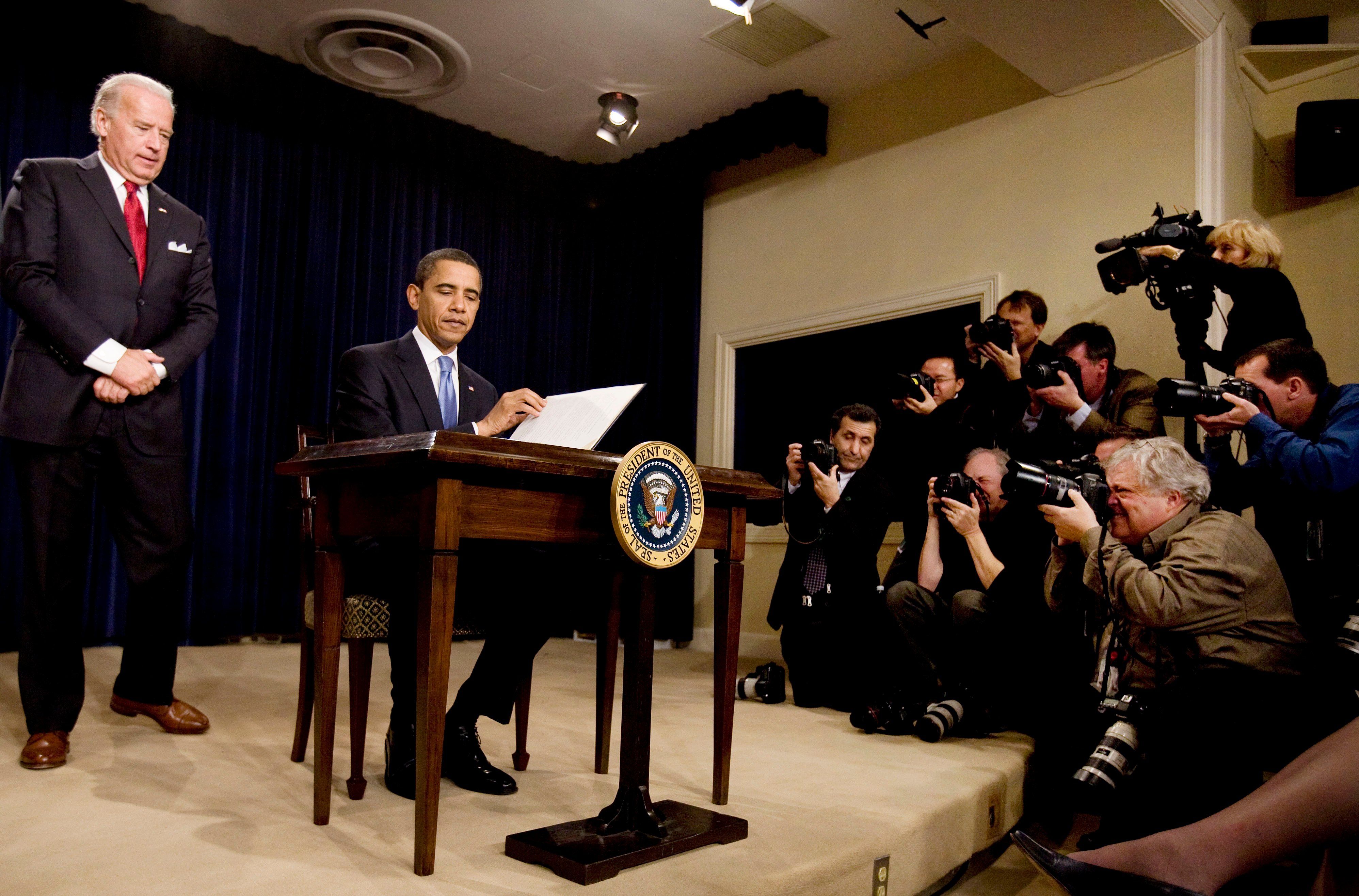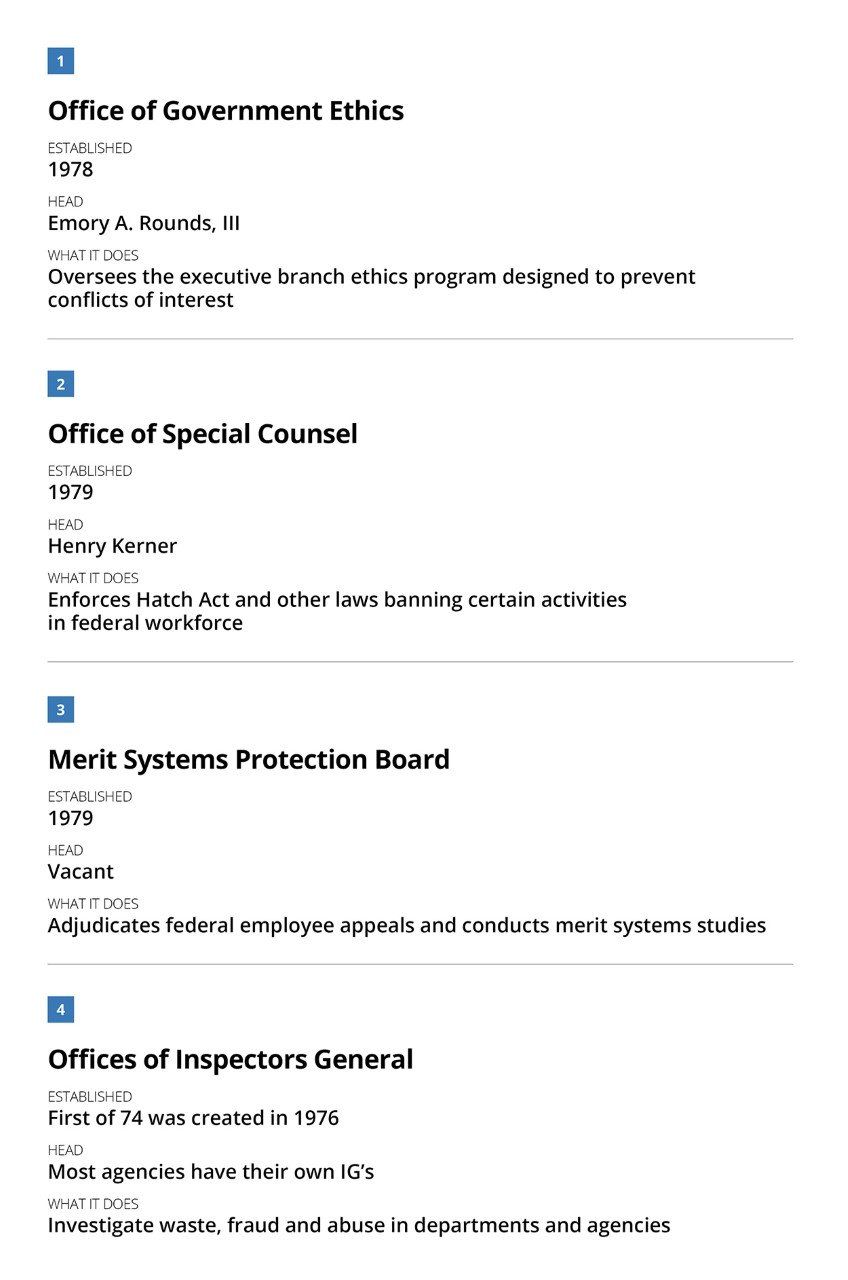
US Ethics Watchdogs Seen Losing Clout in Trump Era
Last week, the Office of Special Counsel, a little-known government watchdog, declared Kellyanne Conway a "repeat offender" of the federal Hatch Act and recommended that President Donald Trump fire her.
Conway had used her perch as presidential counselor to lambaste Democratic candidates in media interviews, a clear violation of the law, which prohibits government employees from engaging in political activity at work.
This was the special counsel's second call for disciplinary action against Conway, but Trump stood by his longtime adviser.
"I'm not going to fire her," Trump said on the TV program Fox and Friends. "I think she's a terrific person. It looks to me like they're trying to take away her right of free speech."

The OSC was once seen as powerful watchdog. Under former President Barack Obama, the agency found two Cabinet secretaries guilty of violating the Hatch Act. Both expressed regret. In the Trump era, however, the agency's ability to hold senior government officials accountable is being put to the test.
"They're facing unprecedented challenges from administration officials basically saying, 'We're not going to abide by your rulings,' " said Meredith McGehee, executive director of the Project for Government Oversight. "It's very dangerous for these watchdog agencies not to be able to effectively enforce the law."
The White House has rejected such criticism.
"The White House takes seriously the principles codified in the Hatch Act and has continued to take affirmative steps to ensure compliance," White House counsel Pat Cipollone wrote last week in response to the special counsel's complaint about Conway.

Born of sweeping congressional reforms to restore faith in government in the wake of the 1970s Watergate scandal, the OSC and the Office of Government Ethics (OGE) are the U.S. government's primary ethics watchdogs (most agencies also have inspectors general who investigate fraud, waste and abuse).
In addition to applying the Hatch Act to keep politics out of the public sector, the OSC enforces another law that protects employees who blow the whistle on government misconduct.
The OGE's mandate is different: ensuring employees avoid conflicts of interest. It does this by requiring financial disclosure — and sometimes divestiture of personal business holdings — by senior officials and presidential nominees.
The two agencies, for the most part, have kept the 2.5 million-strong government bureaucracy on a tight leash, ensuring offenders are disciplined or, in egregious cases, fired.
In 2017, government agencies took disciplinary action against 1,235 employees for violating standards of conduct and referred 69 cases to the Justice Department for possible criminal prosecution, according to the OGE.
In 2018, the OSC obtained disciplinary action against six government employees. A postal worker was fired, and an employee of Immigration and Customs Enforcement agreed to resign for repeatedly violating the Hatch Act.
Yet the two agencies have had to contend over the years with limits placed on their ability to enforce ethics rules.
To obtain disciplinary action against a rank-and-file employee, the OSC typically files a complaint with the Merit Systems Protection Board, a quasi-judicial body that has been rendered all but dormant by the departure of its three members.
But in cases involving senior officials, such as Conway, the special counsel can only make a recommendation for disciplinary action to the president.
The same applies to the OGE. The agency can only recommend that an official or presidential appointee divest certain assets in order to avoid conflicts of interest, but it can't force him or her to take action.
"When we talk about the enforcement problems with these agencies, I think we're specifically talking about higher-level government employees," said Liz Hempowicz, director of public policy at the Project on Government Oversight.
After the 2016 election, Trump rebuffed the OGE's recommendation to sell off his business assets before entering the White House. Instead, he turned over control of his company to his two sons while retaining ownership, making him, according to some ethics experts, the most conflicted president in U.S. history.
The OGE had greater success in getting other Trump administration officials to comply, including Trump son-in-law and senior adviser Jared Kushner.
But the OSC's attempts to have Conway punished for allegedly violating the Hatch Act on multiple occasions have floundered.
"Ms. Conway's violations, if left unpunished, would send a message to all federal employees that they need not abide by the Hatch Act's restrictions," Special Counsel Henry Kerner wrote in a letter to Trump last week. "Her actions thus erode the principal foundation of our democratic system — the rule of law."
While both agencies possess some investigative authority — OSC considerably more than OGE — neither has the power to enforce its own recommendations.
That is a problem that needs to be fixed, said Richard Painter, who served as the White House ethics czar under former President George W. Bush.
"I would agree that if the Office of Special Counsel recommends that an employee be terminated, that that recommendation should be binding on the president," Painter said. "I would feel the same way about the Office of Government Ethics."
To strengthen the OGE, congressional Democrats, backed by outside government watchdogs, are pressing for wide-ranging ethics reform.
Last month, Democratic Sen. Richard Blumenthal and Democratic Rep. Jamie Raskin introduced legislation that would authorize the agency to mete out punishments, such as the dismissal of offending employees, and to protect the OGE director from arbitrary dismissal.
"The legislation would give our nation's top ethics watchdog real teeth," Blumenthal said.
But Republicans oppose the legislation, seeing it as more of a partisan jab at the Trump administration than an earnest effort to promote ethics in government.
"There is an irony here: President Trump came into office talking about draining the swamp, but some of the swampy behavior is going unchecked," McGehee said.
 Watchdog Accuses Ivanka Trump of Political Ethics ViolationNext PostReport: Trump Orders Immigration Raids for Migrants with Deportation Orders
Watchdog Accuses Ivanka Trump of Political Ethics ViolationNext PostReport: Trump Orders Immigration Raids for Migrants with Deportation Orders






